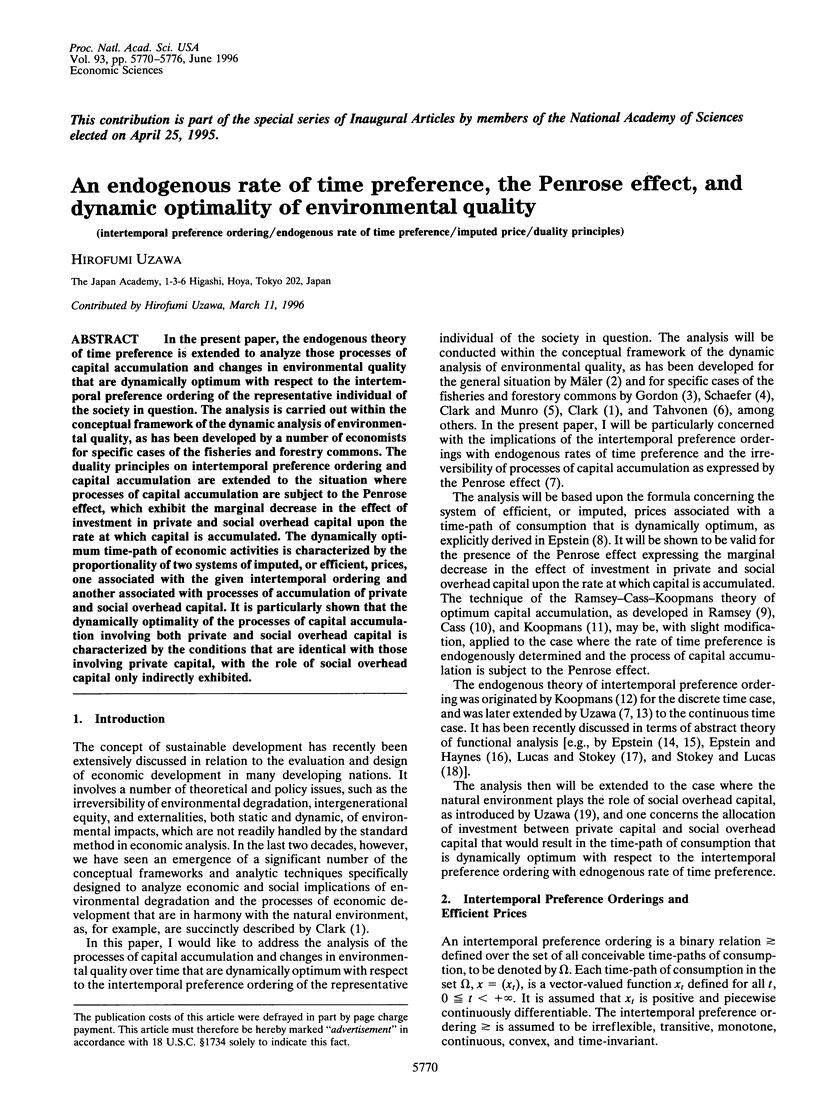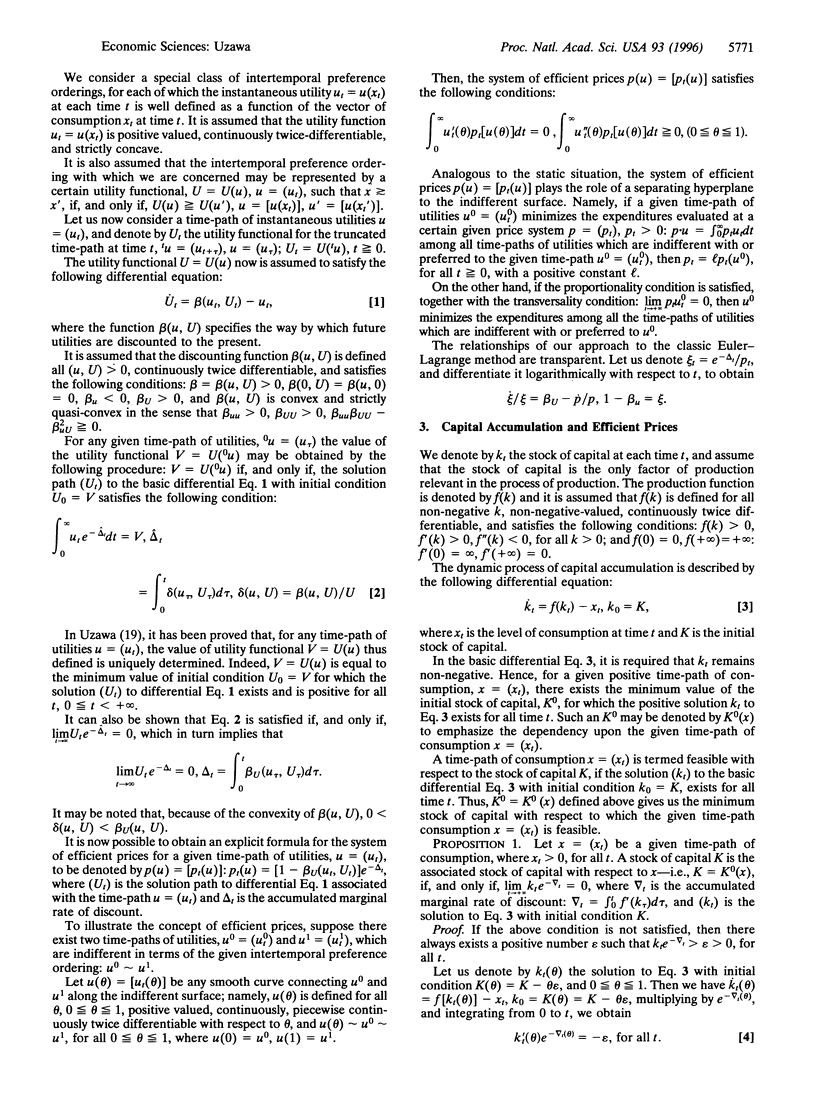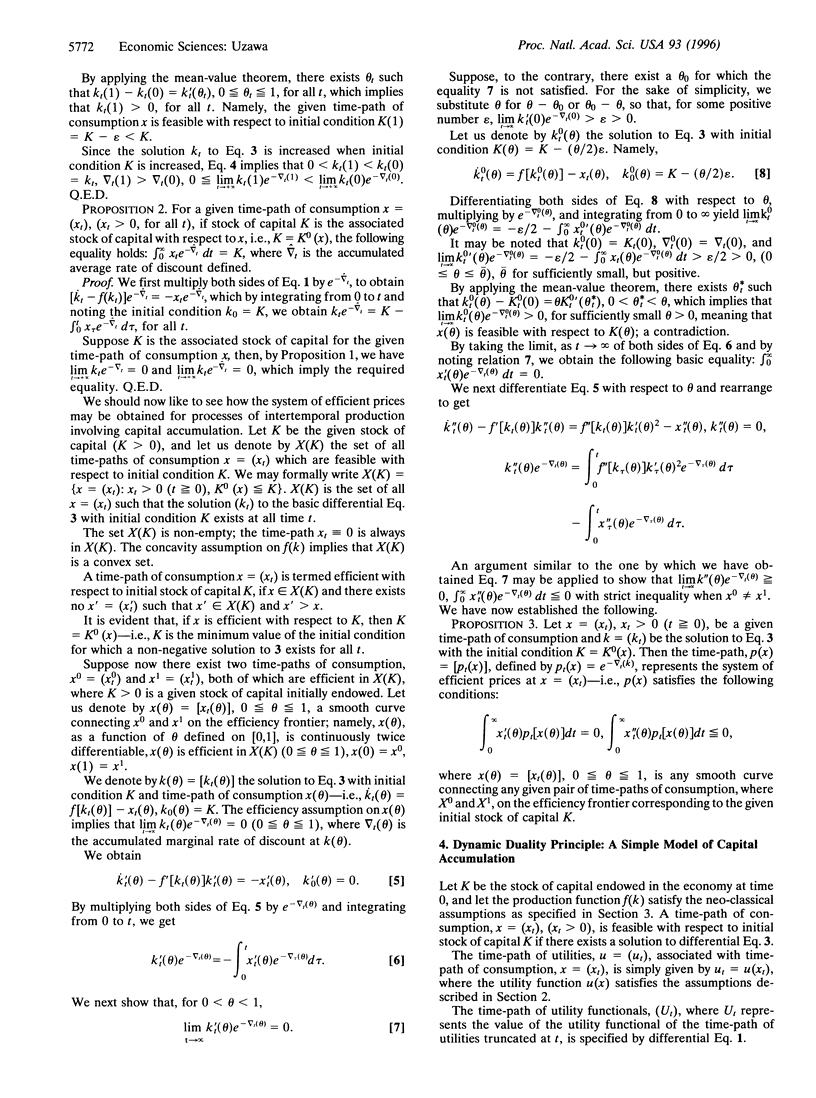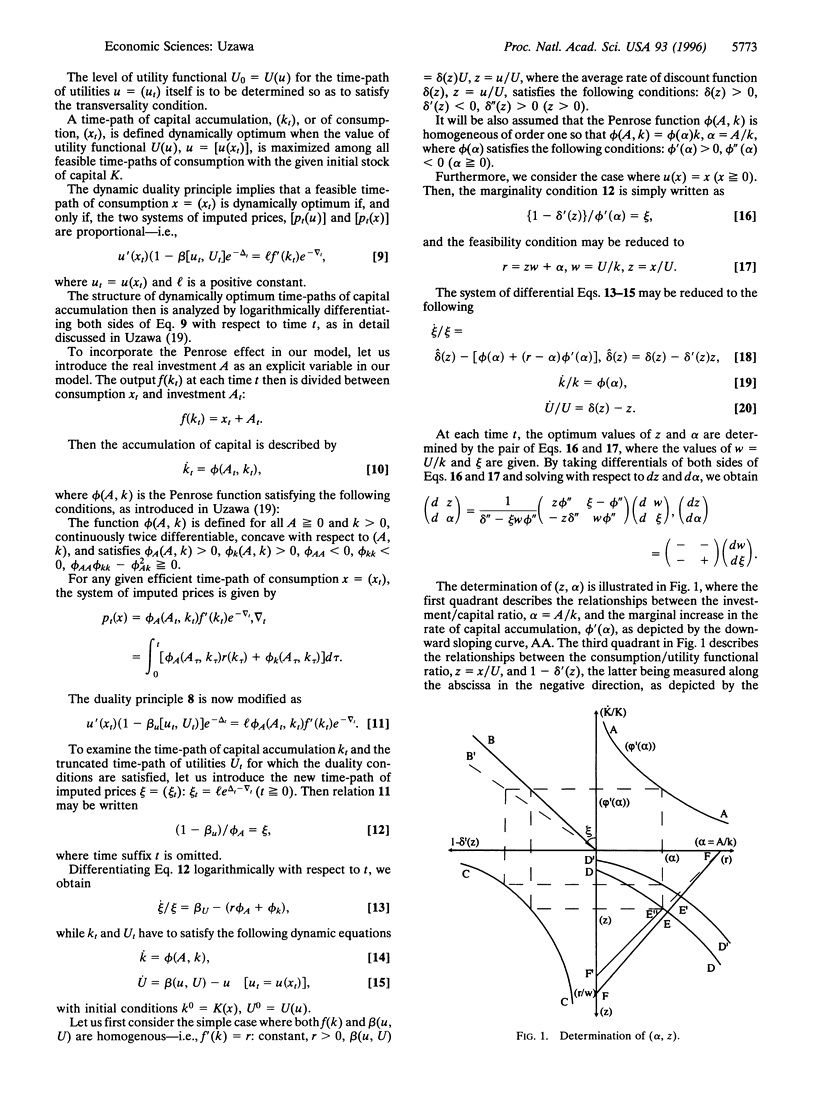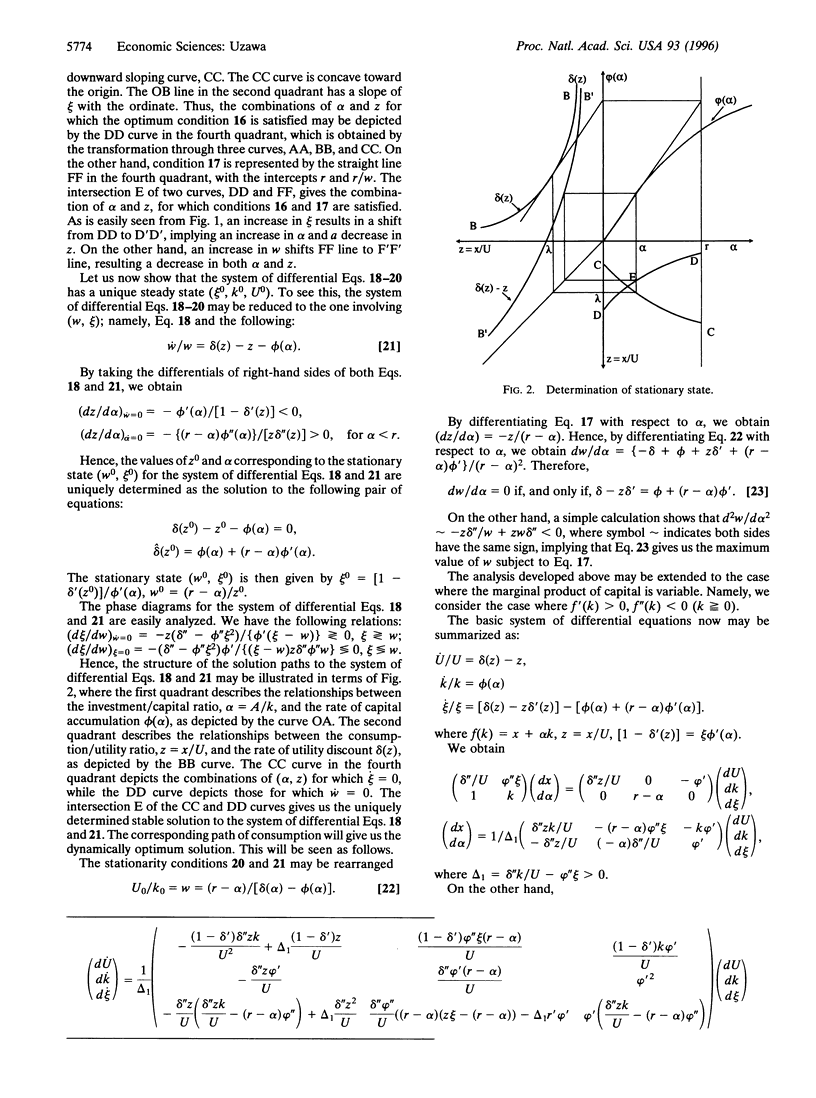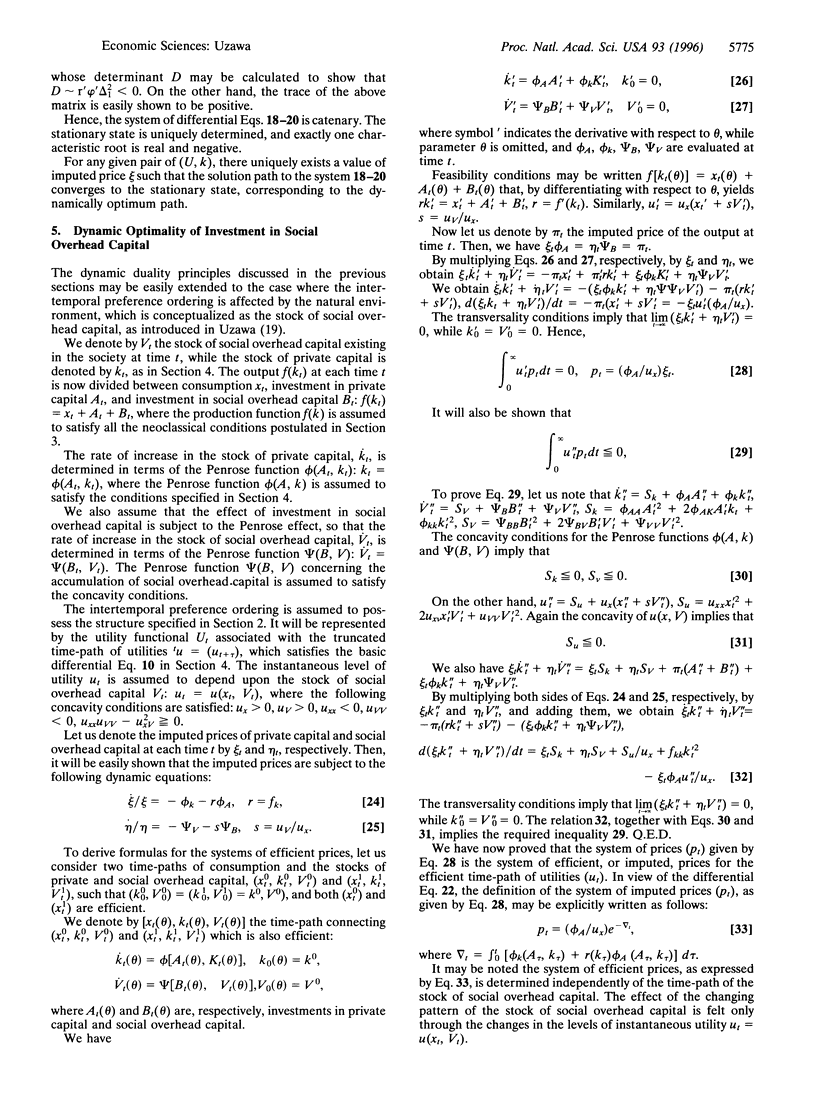Abstract
In the present paper, the endogenous theory of time preference is extended to analyze those processes of capital accumulation and changes in environmental quality that are dynamically optimum with respect to the intertemporal preference ordering of the representative individual of the society in question. The analysis is carried out within the conceptual framework of the dynamic analysis of environmental quality, as has been developed by a number of economists for specific cases of the fisheries and forestry commons. The duality principles on intertemporal preference ordering and capital accumulation are extended to the situation where processes of capital accumulation are subject to the Penrose effect, which exhibit the marginal decrease in the effect of investment in private and social overhead capital upon the rate at which capital is accumulated. The dynamically optimum time-path of economic activities is characterized by the proportionality of two systems of imputed, or efficient, prices, one associated with the given intertemporal ordering and another associated with processes of accumulation of private and social overhead capital. It is particularly shown that the dynamically optimality of the processes of capital accumulation involving both private and social overhead capital is characterized by the conditions that are identical with those involving private capital, with the role of social overhead capital only indirectly exhibited.
Full text
PDF